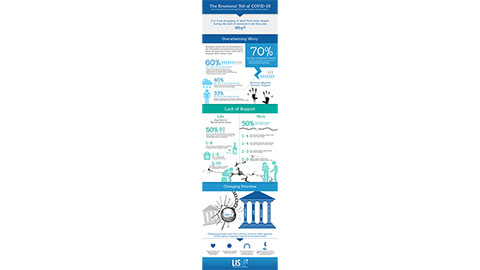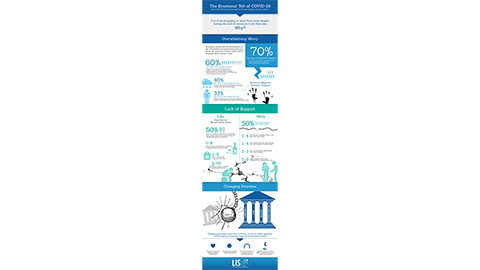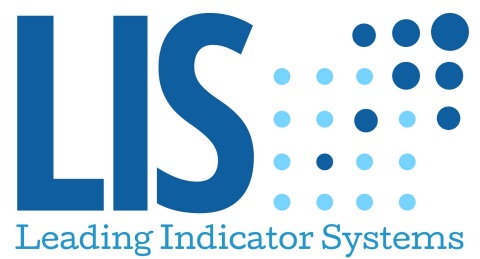BOSTON--(BUSINESS WIRE)--In conjunction with Mental Health Awareness Month, LIS announced the release of its Workforce Listening survey focused on the mental health challenges faced by those currently working from home under COVID-19. Conducted during the week of April 27th, 2020, the survey focused on cognitive and emotional predictors of employee well-being, and how specific employer responses have supported, or failed to support, these workers. Findings suggest that employers differ markedly in terms of their degree of perceived caring, and that employee needs have fundamentally changed, necessitating a reconsideration of the role of employers. All respondents are full time employees of mid-to-large size companies previously working in offices and now working from home. The national survey of 425 employees has a statistical confidence level of 95 percent with a margin of error of 4.8 percent.
The majority of the respondents are struggling. Despite 77% having access to the tools and resources they need to do their jobs, fully 67% find working from home challenging.
Findings point to emotional factors underlying employee struggles:
- Consistent with stay-at-home orders, the dominant negative emotion is feeling trapped.
- 40% fear a complete breakdown of society and worry about their own mental health.
- Many are at risk: 1 in 6 is vulnerable to an addiction; 1 in 8 live in an emotionally unsupportive home; 1 in 10 has no support network whatsoever.
COVID-19 has forced workers to ask fundamental questions about the direction of their lives. The pre-pandemic profile of employee strivings, which focused on work-related motivations for autonomy, immersion, achievement, and recognition has been completely inverted. It has been replaced by a current profile of employee needs dominated by strivings to fulfill one’s personal potential, as well as the search for higher purpose and meaning, along with increased needs for security, love, and interpersonal connection.
Results show that return-to-office approaches need to address employee needs for safety while offering a greater sense of purpose and fulfillment.
- The strongest predictors of successful return to work are emotional: Whether employers show concern for employee well-being and the extent to which employers do not show selfishness, immorality, or injustice.
- Results also suggest the need for employers to re-evaluate policies, practices and benefits to better meet the new profile of employee needs and Post-COVID-19 realities, such as social-distancing while emphasizing the linkage between the work and corporate mission.
Results demonstrate that emotions serve as leading indicators of major employee outcomes such as productivity, engagement and retention, critical factors in the recovery of the economy.
About Leading Indicator Systems
Leading Indicator Systems, a partner to human capital consultants and professionals for more than 20 years, provides assessment solutions designed to help move the needle on the things that matter most.




